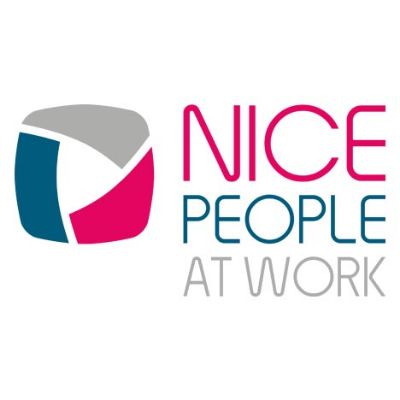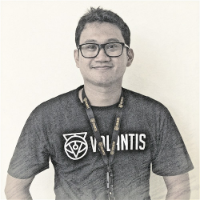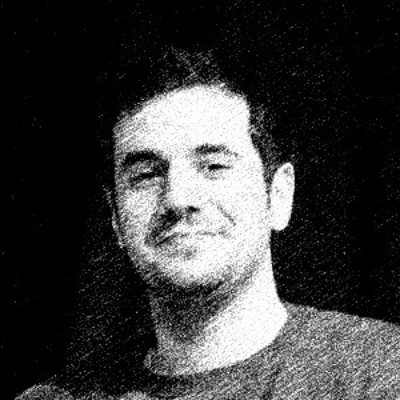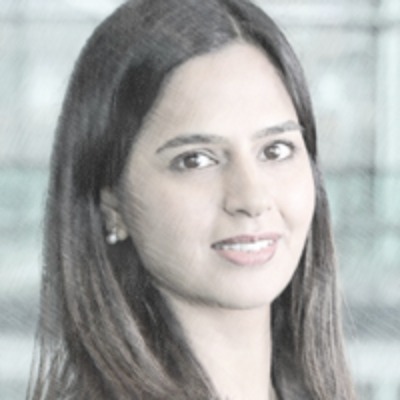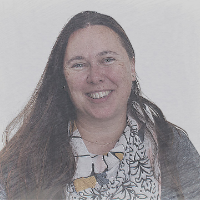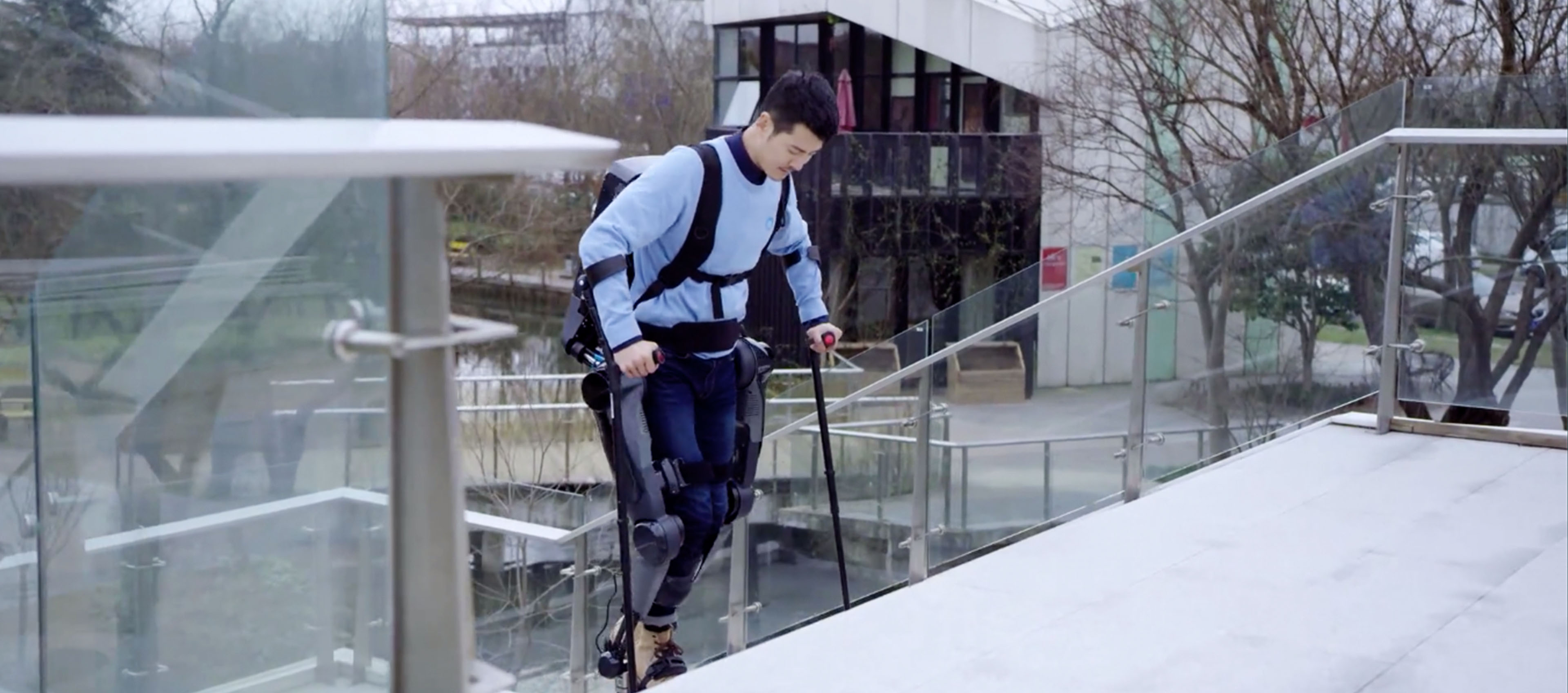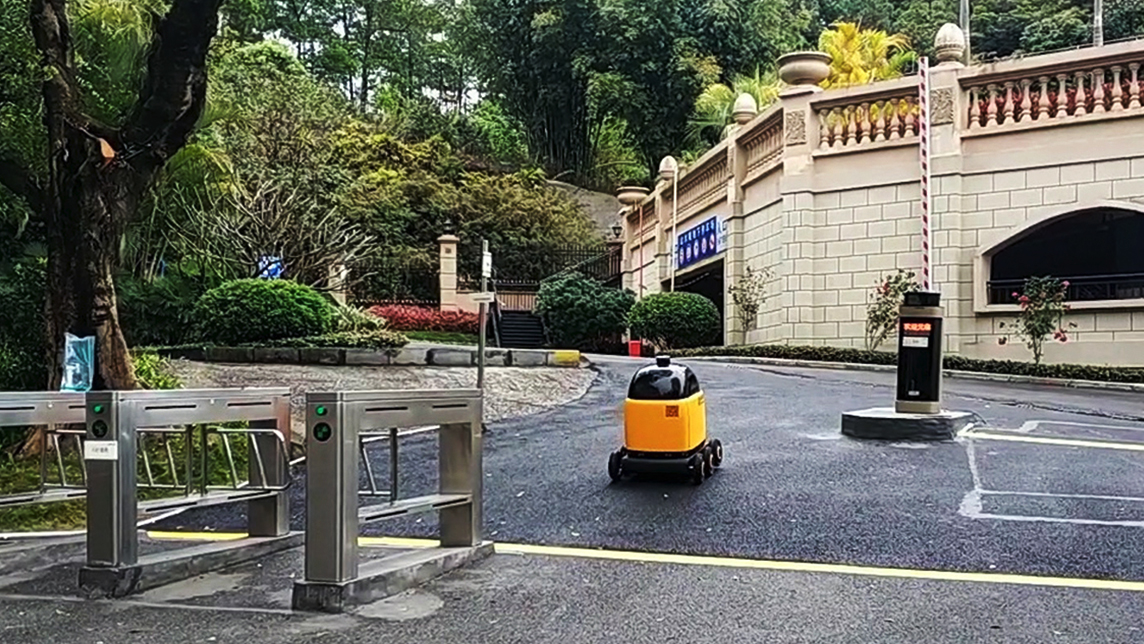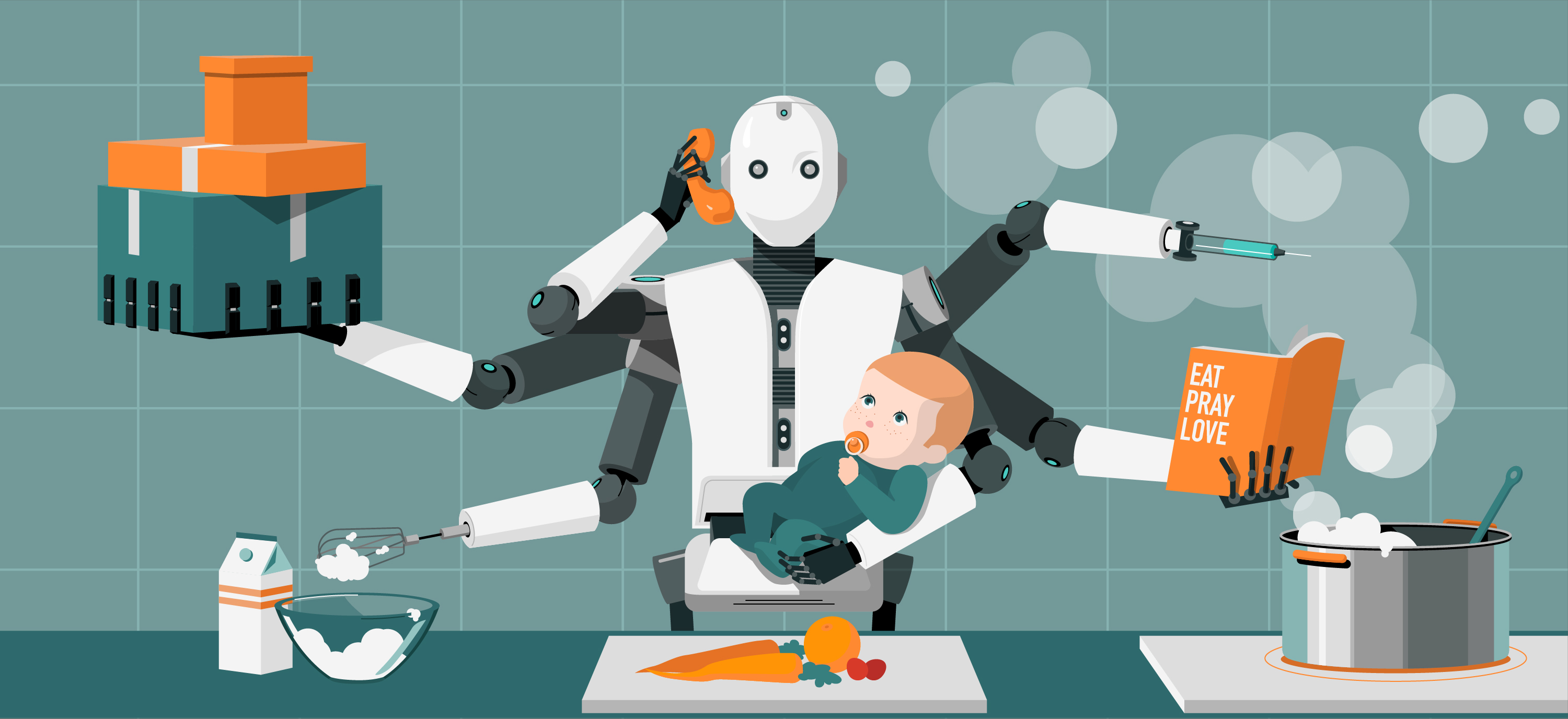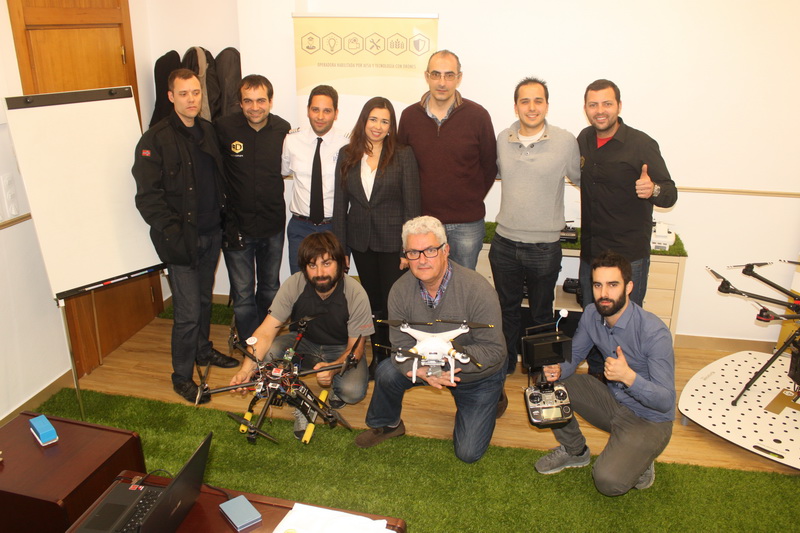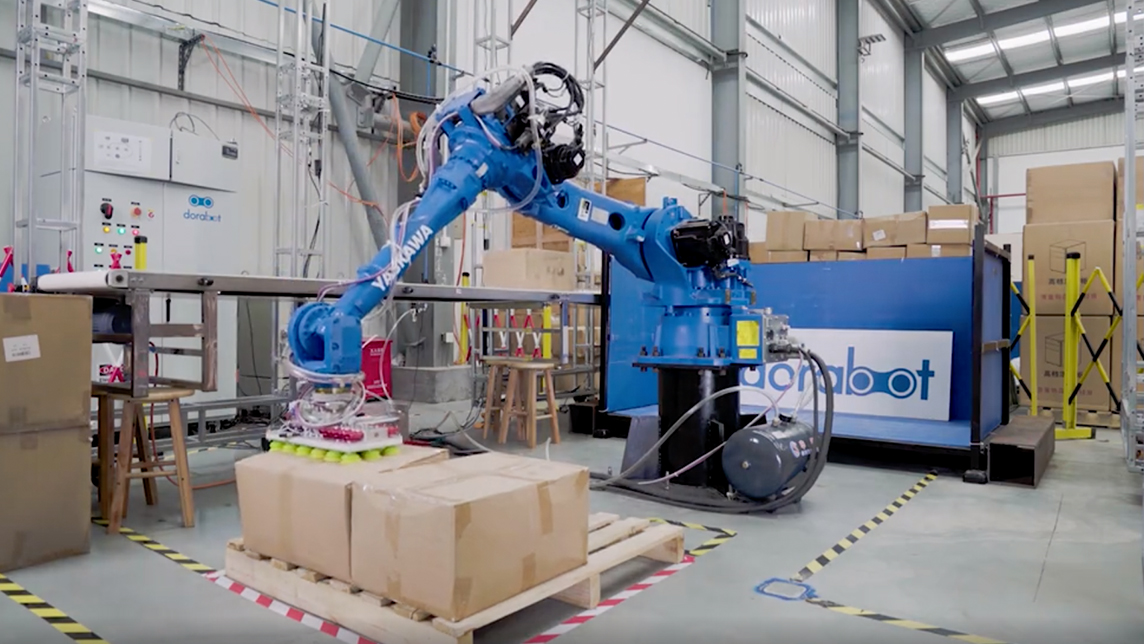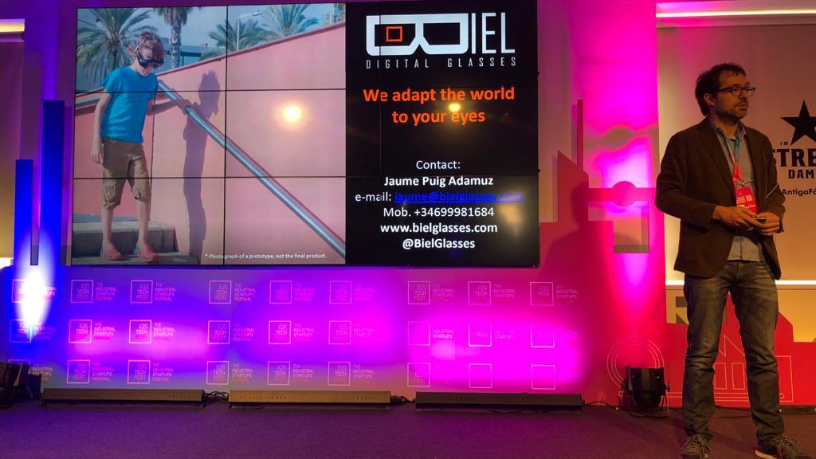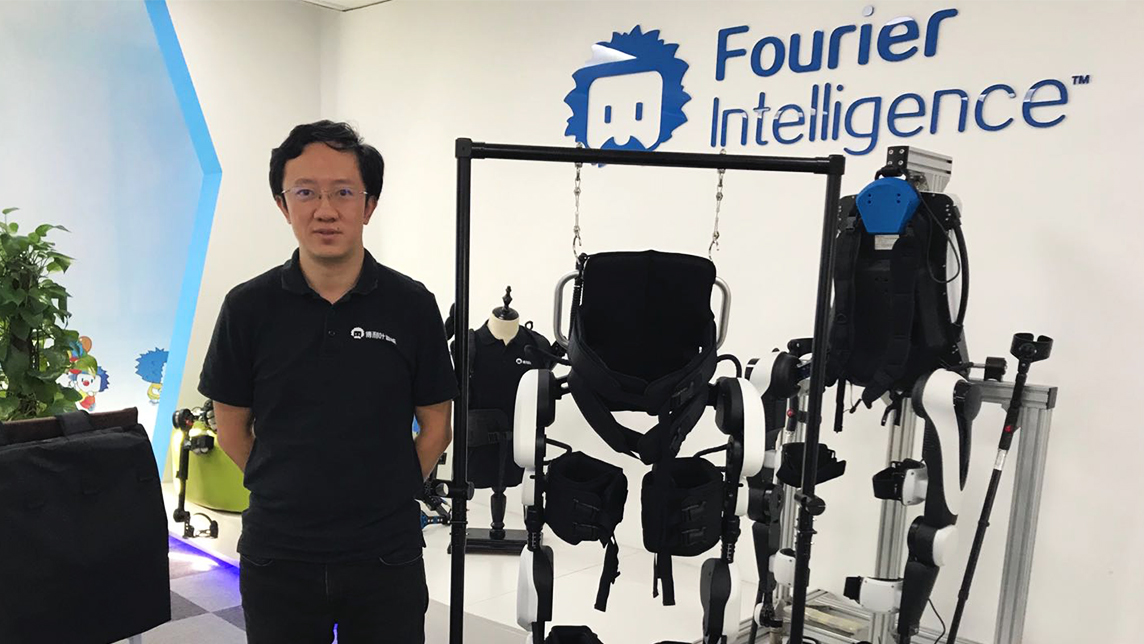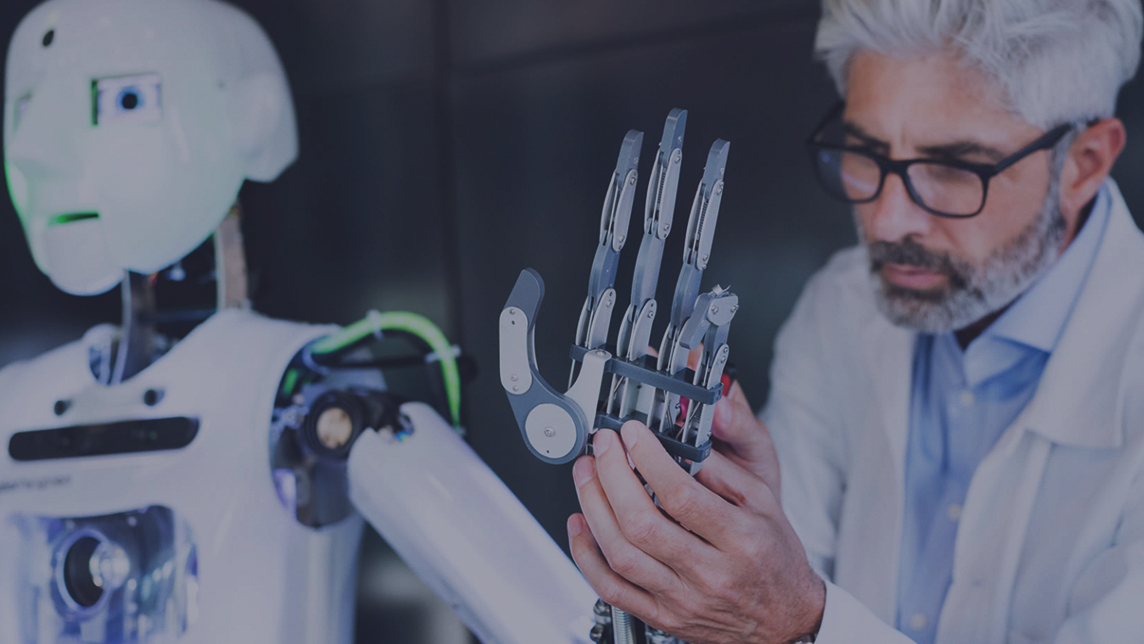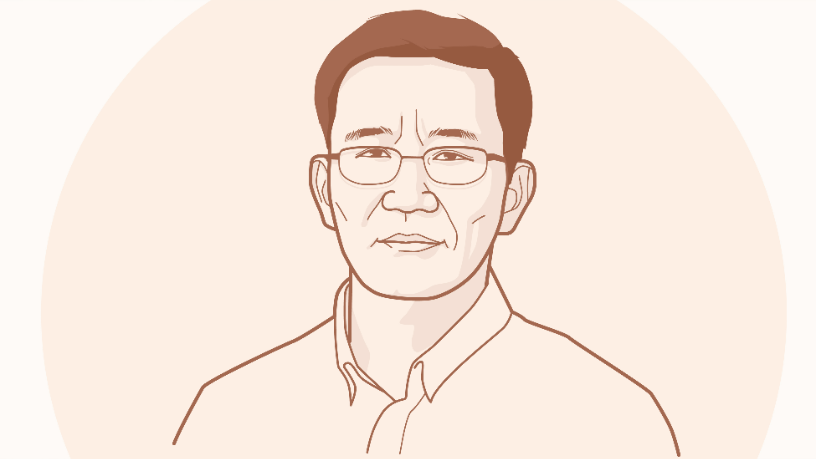Ai-Robotics
-
DATABASE (243)
-
ARTICLES (242)
Developed by ex-UN experts, Everimpact provides real-time GHG data using satellites, sensors and IoT to help cities and companies manage and monetize emissions reduction.
Developed by ex-UN experts, Everimpact provides real-time GHG data using satellites, sensors and IoT to help cities and companies manage and monetize emissions reduction.
Prizewinning pvDesign software automates solar plant design and its lifetime costs, reducing engineers’ time from weeks to minutes. More than 8,000 projects created worldwide and +2,000GW simulated.
Prizewinning pvDesign software automates solar plant design and its lifetime costs, reducing engineers’ time from weeks to minutes. More than 8,000 projects created worldwide and +2,000GW simulated.
As online video dominates the Internet, NPAW's AI-powered business intelligence solutions give media companies an edge in understanding, serving and retaining their customers.
As online video dominates the Internet, NPAW's AI-powered business intelligence solutions give media companies an edge in understanding, serving and retaining their customers.
CEO and co-founder of Volantis
Bachtiar Rifai graduated in 2010 with a bachelor's degree in Physics from Universitas Gadjah Mada, but his career has led him towards entrepreneurial pursuits, especially in technology. While he was in university, he worked freelance as a web designer and SEO consultant, and in 2008, founded his own digital marketing company, Jogja Web Services, which was dedicated to helping SMEs. In 2012, he left Jogja Web Services, joined travel booking site Pegipegi – now owned by Traveloka – and founded a new digital marketing consultancy, WireHub. In 2014, he joined Lazada and Blanja.com. In 2015, Rifai and his co-founders established Kofera, which offers automated digital marketing using AI. Kofera helps its clients efficiently connect various types of data, including sales and stock, on one platform, where the data can be accessed, processed and used to automatically guide ad spending. In 2018, Rifai spun off a new business from Kofera: Volantis, a company that applies Kofera's data-driven principles to more use cases and provides enterprise clients with end-to-end services.
Bachtiar Rifai graduated in 2010 with a bachelor's degree in Physics from Universitas Gadjah Mada, but his career has led him towards entrepreneurial pursuits, especially in technology. While he was in university, he worked freelance as a web designer and SEO consultant, and in 2008, founded his own digital marketing company, Jogja Web Services, which was dedicated to helping SMEs. In 2012, he left Jogja Web Services, joined travel booking site Pegipegi – now owned by Traveloka – and founded a new digital marketing consultancy, WireHub. In 2014, he joined Lazada and Blanja.com. In 2015, Rifai and his co-founders established Kofera, which offers automated digital marketing using AI. Kofera helps its clients efficiently connect various types of data, including sales and stock, on one platform, where the data can be accessed, processed and used to automatically guide ad spending. In 2018, Rifai spun off a new business from Kofera: Volantis, a company that applies Kofera's data-driven principles to more use cases and provides enterprise clients with end-to-end services.
CTO and co-founder of Aimentia
Eric Mourin is the Barcelona-based CTO and co-founder of Aimentia, which runs the first AI-powered virtual clinic for mental health patients. He met his fellow co-founder Edgar Jorba, who is now CEO of Aimentia, at the Open University of Catalonia. The company was established while both co-founders were still students.Mourin is a computer engineer by training. Prior to setting up Aimentia, he worked as a software engineer. He also spent close to two years working on a World Heath Organization (WHO) project involving the design and implementation of an IT system for the monitoring and control of neglected tropical diseases. This IT system equipped affected countries to make data-based decisions to reduce incidence of such endemic diseases, while allowing the WHO to efficiently monitor progress.Mourin holds a master’s in computer and information systems security from the Open University of Catalonia as well as a bachelor’s in computer engineering from the Polytechnic University of Catalonia.
Eric Mourin is the Barcelona-based CTO and co-founder of Aimentia, which runs the first AI-powered virtual clinic for mental health patients. He met his fellow co-founder Edgar Jorba, who is now CEO of Aimentia, at the Open University of Catalonia. The company was established while both co-founders were still students.Mourin is a computer engineer by training. Prior to setting up Aimentia, he worked as a software engineer. He also spent close to two years working on a World Heath Organization (WHO) project involving the design and implementation of an IT system for the monitoring and control of neglected tropical diseases. This IT system equipped affected countries to make data-based decisions to reduce incidence of such endemic diseases, while allowing the WHO to efficiently monitor progress.Mourin holds a master’s in computer and information systems security from the Open University of Catalonia as well as a bachelor’s in computer engineering from the Polytechnic University of Catalonia.
Co-founder of Acuilae
Pedro Diezma is an entrepreneur, author and professional speaker as well as a co-founder of AI software development company Acuilae. He previously founded Zerintia Technologies, which specializes in wearable technology, IoT and software and business processes and was its CEO until 2017. Diezma was also a senior project manager at Endesa and had developed projects for over 450 enterprises. As an author, his books include The Crown of Adam and The Rebirth of the Hero. According to Onalytica, Diezma is a top influencer on IoT and wearables. Diezma holds a degree in Business Administration and Management from Madrid's Complutense University.
Pedro Diezma is an entrepreneur, author and professional speaker as well as a co-founder of AI software development company Acuilae. He previously founded Zerintia Technologies, which specializes in wearable technology, IoT and software and business processes and was its CEO until 2017. Diezma was also a senior project manager at Endesa and had developed projects for over 450 enterprises. As an author, his books include The Crown of Adam and The Rebirth of the Hero. According to Onalytica, Diezma is a top influencer on IoT and wearables. Diezma holds a degree in Business Administration and Management from Madrid's Complutense University.
CEO and co-founder of The Not Company (NotCo)
Matías Muchnick graduated among the top 10% in business administration from the University of Chile in 2011 and went on to complete a master’s in Finance in 2012. He gained some work experience in Santiago as an analyst at LarrainVial in 2010 and spent the summer working at JP Morgan in Hong Kong after his graduation in 2011.In 2012, he became an entrepreneur and founded the wellness app Chooz, a project sponsored by the Chilean government. In 2013, he co-founded Eggless, the first food company in Chile to offer vegan mayonnaise in Chilean supermarkets like Walmart and Jumbo. He exited the business in 2015 and, in the same year, joined an entrepreneurship bootcamp at the University of California, Berkley, where he approached the biochemistry department to learn more about data and science. He also completed executive programs at Harvard Business School in 2015 and at the Stanford University in 2018.In November 2015, he co-founded the Chilean foodtech Not Company (NotCo) with astrophysicist Karim Pichara, who he met in Harvard, and Pablo Zamora. Based in New York, Muchnick is the CEO of NotCo, which combines AI with food science to create plant-based products that mimic animal-based food like milk and burgers.
Matías Muchnick graduated among the top 10% in business administration from the University of Chile in 2011 and went on to complete a master’s in Finance in 2012. He gained some work experience in Santiago as an analyst at LarrainVial in 2010 and spent the summer working at JP Morgan in Hong Kong after his graduation in 2011.In 2012, he became an entrepreneur and founded the wellness app Chooz, a project sponsored by the Chilean government. In 2013, he co-founded Eggless, the first food company in Chile to offer vegan mayonnaise in Chilean supermarkets like Walmart and Jumbo. He exited the business in 2015 and, in the same year, joined an entrepreneurship bootcamp at the University of California, Berkley, where he approached the biochemistry department to learn more about data and science. He also completed executive programs at Harvard Business School in 2015 and at the Stanford University in 2018.In November 2015, he co-founded the Chilean foodtech Not Company (NotCo) with astrophysicist Karim Pichara, who he met in Harvard, and Pablo Zamora. Based in New York, Muchnick is the CEO of NotCo, which combines AI with food science to create plant-based products that mimic animal-based food like milk and burgers.
Chairman and Founder of Squirrel AI
Born in 1977, Li Haoyang completed senior high school-level classes while he was of junior high school age, and was admitted into the program for gifted children at Shanghai Jiao Tong University. Li is a serial entrepreneur with more than 20 years of experience in K12 education. He co-founded Dashan Foreign Language School, a regional, K12 educational institution chain that operated from 1999–2003, and was also the school’s CEO and principal. He then co-founded after-school tutoring center Only Education International in 2004 and was CEO and Vice-Chairman of the school board. In 2015, Only Education went public, issuing A-stocks. Li then co-founded the social app Friends Impression (a literal translation of the app’s original Mandarin name) in 2014. Li founded Squirrel AI in 2015 and currently serves as Chairman of the board.
Born in 1977, Li Haoyang completed senior high school-level classes while he was of junior high school age, and was admitted into the program for gifted children at Shanghai Jiao Tong University. Li is a serial entrepreneur with more than 20 years of experience in K12 education. He co-founded Dashan Foreign Language School, a regional, K12 educational institution chain that operated from 1999–2003, and was also the school’s CEO and principal. He then co-founded after-school tutoring center Only Education International in 2004 and was CEO and Vice-Chairman of the school board. In 2015, Only Education went public, issuing A-stocks. Li then co-founded the social app Friends Impression (a literal translation of the app’s original Mandarin name) in 2014. Li founded Squirrel AI in 2015 and currently serves as Chairman of the board.
Modulous’s automated generative design technology and ready kit of parts pioneers the rapid scaling of affordable, locally built housing projects to meet sustainability goals.
Modulous’s automated generative design technology and ready kit of parts pioneers the rapid scaling of affordable, locally built housing projects to meet sustainability goals.
Offering generalized AI solutions for entire industries rather than tailored ones for individual companies, this startup plans to increase significantly adoption of the technology.
Offering generalized AI solutions for entire industries rather than tailored ones for individual companies, this startup plans to increase significantly adoption of the technology.
COO and co-founder of iLoF
Mehak Mumtaz grew up in Pakistan and decided to study biochemistry when she saw her brother suffering from an unknown learning disability. Her parents, both medical doctors, could not get an accurate diagnosis for their son. In her search to understand the molecular mechanisms behind diseases, she applied to study at the University of Oxford. In 2008, she was granted the Reach Oxford Scholarship and graduated with a master’s in biochemistry in 2012. In 2015, the St Hilda’s alumna worked as an undergraduate tutor at Oxford while completing a PhD in pathology, specializing in oncology and cancer biology.In 2018, she worked on a rare cancer project as EIT Health Business Innovation fellow for a year. She left academia and joined a three-month bioentrepreneur bootcamp in Munich and a one-month Lev8 Woman Program at her alma mater’s Oxford Foundry. She joined EY-Parthenon in London as a strategy consultant in April 2019.In 2019, Mumtaz also met the iLoF co-founding team at the EIT Health Wild Card venture-building program. iLoF is a medtech startup that focuses on personalized medicine through the use of AI and photonics to create optical fingerprints in a cloud-based library to gather and manages disease biomarkers and biological profiles.She joined iLoF as COO and co-founder in December 2019 and left her full-time consultancy role at EY in March 2020.
Mehak Mumtaz grew up in Pakistan and decided to study biochemistry when she saw her brother suffering from an unknown learning disability. Her parents, both medical doctors, could not get an accurate diagnosis for their son. In her search to understand the molecular mechanisms behind diseases, she applied to study at the University of Oxford. In 2008, she was granted the Reach Oxford Scholarship and graduated with a master’s in biochemistry in 2012. In 2015, the St Hilda’s alumna worked as an undergraduate tutor at Oxford while completing a PhD in pathology, specializing in oncology and cancer biology.In 2018, she worked on a rare cancer project as EIT Health Business Innovation fellow for a year. She left academia and joined a three-month bioentrepreneur bootcamp in Munich and a one-month Lev8 Woman Program at her alma mater’s Oxford Foundry. She joined EY-Parthenon in London as a strategy consultant in April 2019.In 2019, Mumtaz also met the iLoF co-founding team at the EIT Health Wild Card venture-building program. iLoF is a medtech startup that focuses on personalized medicine through the use of AI and photonics to create optical fingerprints in a cloud-based library to gather and manages disease biomarkers and biological profiles.She joined iLoF as COO and co-founder in December 2019 and left her full-time consultancy role at EY in March 2020.
CEO and Founder of Didimo
Argentinian-born Verónica Costa Orvalho is a veteran in animation technology. In 2016, she became the CEO and founder of Didimo that was inspired by an earlier venture Face In Motion, established in 2007 to focus on cinematic quality and animation production of faces. Orvalho won the award for the AI and virtual reality category at a Women Startup Challenge event held in New York in 2017. Orvalho has a long academic track record in related fields, beginning with a first degree in Software Engineering from the University of Belgrano in Buenos Aires. She moved to Barcelona and obtained a master's degree in Videogame Design and Development at University Pompeu Fabra where she continued to work on creating a facial animation system “For CG Films”. She later completed her PhD at the Polytechnic University of Catalonia with her thesis: Fast and Reusable Facial Rigging and Animation to develop an application that could speed up the traditional “slowing rigging” process. She has worked at Ericsson as a systems analyst and was a producer at the Argentinian film company Patagonik Film Group that helped to produce the Oscar-winning movie El hijo de la novia. She worked for four years as the founder of Panorama Consulting, a consultancy focusing on developing systems for the medical, logistics and entertainment industries. Since 2003, she has lectured in different institutions, including Porto University's Porto Interactive Center as its specialist in facial animation since 2008.
Argentinian-born Verónica Costa Orvalho is a veteran in animation technology. In 2016, she became the CEO and founder of Didimo that was inspired by an earlier venture Face In Motion, established in 2007 to focus on cinematic quality and animation production of faces. Orvalho won the award for the AI and virtual reality category at a Women Startup Challenge event held in New York in 2017. Orvalho has a long academic track record in related fields, beginning with a first degree in Software Engineering from the University of Belgrano in Buenos Aires. She moved to Barcelona and obtained a master's degree in Videogame Design and Development at University Pompeu Fabra where she continued to work on creating a facial animation system “For CG Films”. She later completed her PhD at the Polytechnic University of Catalonia with her thesis: Fast and Reusable Facial Rigging and Animation to develop an application that could speed up the traditional “slowing rigging” process. She has worked at Ericsson as a systems analyst and was a producer at the Argentinian film company Patagonik Film Group that helped to produce the Oscar-winning movie El hijo de la novia. She worked for four years as the founder of Panorama Consulting, a consultancy focusing on developing systems for the medical, logistics and entertainment industries. Since 2003, she has lectured in different institutions, including Porto University's Porto Interactive Center as its specialist in facial animation since 2008.
Invested and used by BlackRock, the pioneer in AI-based qualitative analysis-recommendation SaaS for ESG investments covers 100k+ funds, 25k listed firms, with 1,000 indicators.
Invested and used by BlackRock, the pioneer in AI-based qualitative analysis-recommendation SaaS for ESG investments covers 100k+ funds, 25k listed firms, with 1,000 indicators.
CEO and co-founder of Everimpact
Mathieu Carlier is CEO and co-founder of Everimpact, a GHG monitoring company that uses satellites, ground sensors, AI and machine learning to deliver more accurate and immediate carbon emissions data to public bodies, municipalities, and businesses. He has over 20 years of experience as an advisor to governments, public institutions at the likes of the UN, the European Commission and EU Agencies, the Bill & Melinda Gates Foundation and large corporations in international development. Prior to Everimpact, much of Carlier’s career was spent in complex data systems projects for government elections or for health ministries in war-torn or post-conflict developing countries. This included delivering multimillion-dollar biometric and big data projects in the run-up to 50 presidential elections in countries like Afghanistan, Iraq, Pakistan, Libya, the Congo and Benin. Carlier is based in Copenhagen, Denmark and holds an MSc in Business Administration from the Burgundy School of Business.
Mathieu Carlier is CEO and co-founder of Everimpact, a GHG monitoring company that uses satellites, ground sensors, AI and machine learning to deliver more accurate and immediate carbon emissions data to public bodies, municipalities, and businesses. He has over 20 years of experience as an advisor to governments, public institutions at the likes of the UN, the European Commission and EU Agencies, the Bill & Melinda Gates Foundation and large corporations in international development. Prior to Everimpact, much of Carlier’s career was spent in complex data systems projects for government elections or for health ministries in war-torn or post-conflict developing countries. This included delivering multimillion-dollar biometric and big data projects in the run-up to 50 presidential elections in countries like Afghanistan, Iraq, Pakistan, Libya, the Congo and Benin. Carlier is based in Copenhagen, Denmark and holds an MSc in Business Administration from the Burgundy School of Business.
The European Investment Bank is a pan-European investor based in Luxembourg, and the only bank owned by European Union member states. Founded in 1958, the banks has invested in thousands of businesses and public and private infrastructure projects. It is the largest multilateral borrower and lender by volume and also now has an SME tech focus, with recipients needing to have sustainable business model and, usually, a European focus. In December 2020, the EIB launched a new €150m co-investment fund to support startups leveraging AI across Europe to address what it called “the multibillion-euro funding gap compared with the United States and China.” Its most recent investments include a €20m investment in the €32m Series C round of Portuguese international online print store 360imprimir (BIZAY) and its first spacetech investment, €20m in venture debt investment to Luxembourg-based Spire Global that is building a satellite constellation, both in December 2020.In 4Q 2020, it also invested €10m in Spanish industrial IoT startup Worldsensing, €15m in German identity verification platform IDnow and €15 in German sportstech platform KINEXON.
The European Investment Bank is a pan-European investor based in Luxembourg, and the only bank owned by European Union member states. Founded in 1958, the banks has invested in thousands of businesses and public and private infrastructure projects. It is the largest multilateral borrower and lender by volume and also now has an SME tech focus, with recipients needing to have sustainable business model and, usually, a European focus. In December 2020, the EIB launched a new €150m co-investment fund to support startups leveraging AI across Europe to address what it called “the multibillion-euro funding gap compared with the United States and China.” Its most recent investments include a €20m investment in the €32m Series C round of Portuguese international online print store 360imprimir (BIZAY) and its first spacetech investment, €20m in venture debt investment to Luxembourg-based Spire Global that is building a satellite constellation, both in December 2020.In 4Q 2020, it also invested €10m in Spanish industrial IoT startup Worldsensing, €15m in German identity verification platform IDnow and €15 in German sportstech platform KINEXON.
China’s medical exoskeleton startups take on a promising but challenging market
It was not until 2018 that the first China-made lower limb exoskeleton got regulatory clearance at home, around the same time the first Chinese rehabilitation robot got US FDA approval
Alias Robotics: Award-winning cyber security pioneer reduces “clear and present danger” of robots
As machines become integral parts of daily life, Alias Robotics offers humans a way to solve the ever-increasing potential risks of robots
Soon, a cute robot will bring you your online shopping
Using robots to automate last-mile delivery, Zhen Robotics wants to help the logistics industry slash costs and boost customer satisfaction.
Catalonia: Spain's fast-rising robotics hub and next opportunity
With the robotics sector on the rise in Catalonia, expect to see more growth ahead, driving opportunities in related segments, especially services
Dronak looks beyond the skies to a future of robotics
Dronak CEO Fabia Silva wants to make the world a better place through robotics innovation, but needs funding so the company can spread its tech wings past drones
Dorabot's aim for warehousing: No humans allowed
With a combination of AI, global partnerships and speed, Dorabot is leaping into the future
Biel Glasses: A pioneering solution for low vision sufferers
Biel Glasses offers a life-changing technology for people with low vision, a condition that is seven times more common than blindness
Fourier Intelligence: Quality rehabilitation robots at affordable prices
The startup has also launched an open-source platform to boost rehabilitation robotics and exoskeleton R&D and collaboration
Can AI make ethical decisions? Ethyka by Acuilae wants to train AI systems to reason like humans
Ethyka, an AI training module, sets the ethical principles and conditioning for AI systems in applications ranging from chatbots to autonomous cars
Li Zexiang and his game-changing plans to take Chinese robotics global
An early supporter of drone giant DJI, Professor Li Zexiang is building robotics hubs across China to pivot homegrown enterprises into global players
China’s startups have much to gain from the US-China trade war
The prolonged trade conflict may be exactly what Chinese startups need to strengthen their technological capabilities
Ambit Robotics: Automated crop spraying for Southeast Asia's smallholder farmers
Small, affordable crop-spraying robots can help farmers save on labor costs and protect humans from exposure to harmful chemicals
ARTICARES: Personalized, more affordable arm rehab therapy at home
Using adaptive AI, its H-Man robot works like an occupational therapist, assessing patient’s performance and adjusting the complexity of training tasks in real time
Zen Video: Using AI to automate video editing
Founded by a Carnegie Mellon roboticist, the Zen Video app reduces the time required to edit video clips to only a few minutes, meeting growing demand for short videos
Chinese startups join the race to address chip shortage amid funding boom
Would an overheated semiconductor startup scene and the ability to design cutting-edge chips be enough to help China achieve chip self-sufficiency?
Sorry, we couldn’t find any matches for“Ai-Robotics”.



